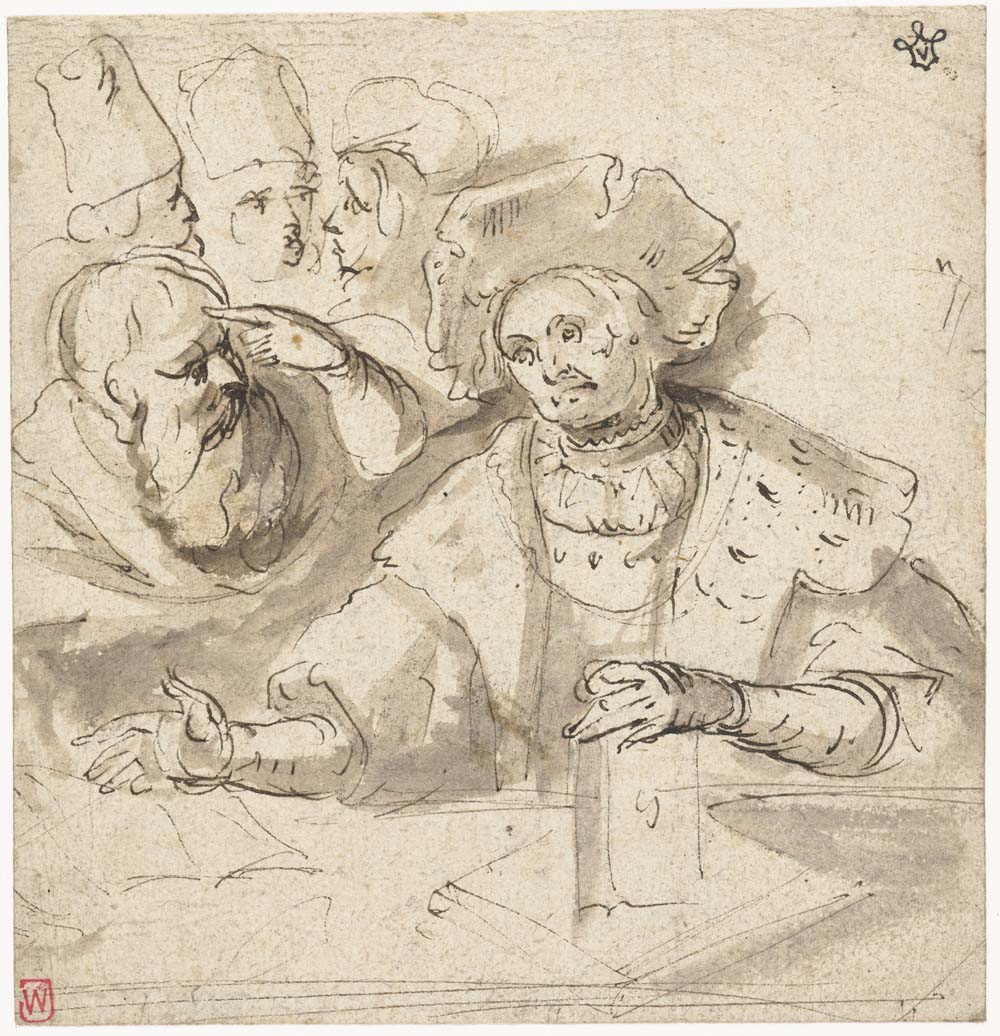
‘Group of philosophers’, by Frans Francken II. Before 1642. Ink and chalk on paper, 14.2 by 13.7cm. (source of image: Rijksmuseum, Amsterdam; RP-T-1965-177)
This week in EMLO we turn our attention to philosophy with publication of the catalogue of the correspondence of Henricus Reneri. A Calvinist convert who had fled from Liège, Reneri was working as a tutor in Amsterdam when he met René Descartes for the first time. It was the winter of 1628–9 and the two became such firm — and lifelong — friends that when, in 1631, Reneri was appointed professor of philosophy at the Deventer Illustre Gymnasium and, subsequently in 1634, at the school in Utrecht, Descartes chose to move as well. By 1638, Reneri was teaching and promoting Decartes’s philosophy openly, and he encouraged Descartes to write and to publish.
The calendar of Reneri’s surviving correspondence has been contributed to EMLO by Dr Robin Buning, who worked with Cultures of Knowledge on the correspondence networks of Samuel Hartlib for three fruitful years. Prior to that, during his doctoral studies, Robin collated and worked on Reneri’s surviving correspondence and his thesis, supervised by Professor Theo Verbeek at Utrecht, formed part of the project ‘Descartes and his network‘, the main output of which is a forthcoming and eagerly awaited new edition of Descartes’s complete correspondence.
Despite his friendship with, and promotion of, Descartes, Reneri himself is not considered a Cartesian philosopher, teaching instead a reformed Aristotelianism which combined Aristotle’s physics with elements from Descartes’s theories. Of course, Descartes’s own correspondence — contributed to our union catalogue by Cultures of Knowledge’s Dutch sister project, Circulation of Knowledge and its text-rich database the ePistolarium, and taken from the edition of Charles Adam and Gérard Milhaud (which was published between 1936 and 1963) — may be consulted also in EMLO. Reneri, who conducted his own experiments with thermometers, optics, and water clocks, was known within the circle of Samuel Hartlib, and he provides a fascinating example of how an individual may be traced in and out of correspondence clusters, stitching threads across EMLO’s union catalogue in the course of a scholarly life. With regard to twenty-first century scholarly networks, Robin is working at present on the formidable and impressive Erasmus Opera Omnia edition and we hope very much it will not be too long before we work together again.
